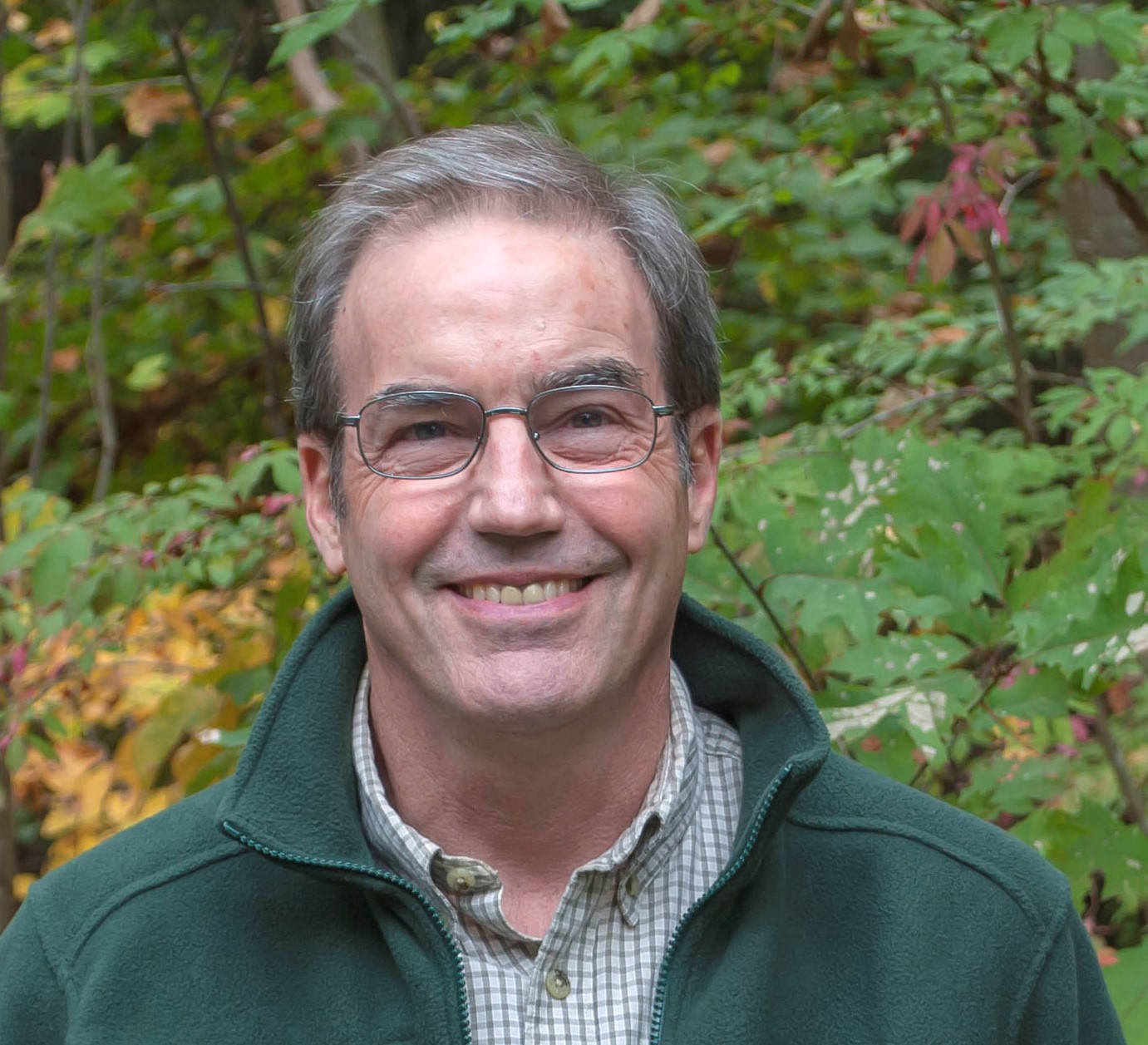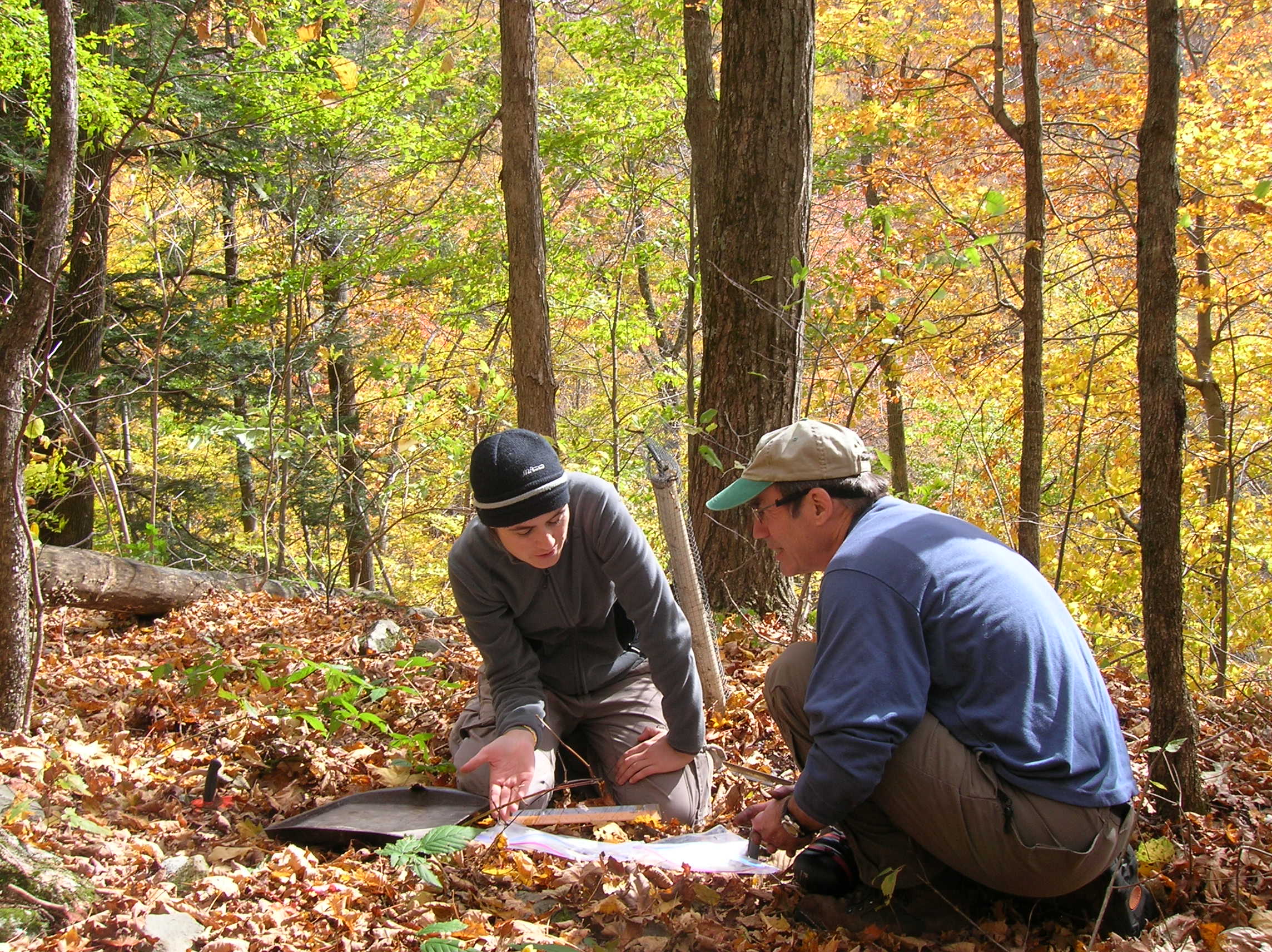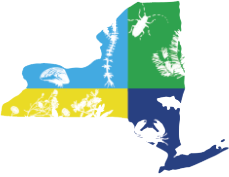By: Abby Bezrutczyk
From his research on the impacts of forest pests, to proposing federal policies through “Tree-SMART Trade”, Dr. Gary Lovett is working to protect the future of our forests. NYISRI is pleased to highlight his work and research in this month’s spotlight.

What kinds of research questions related to invasive species are you currently asking?
I am studying the impacts of invasive pests and diseases on forest ecosystems. We are looking at both short-term and long-term effects on species composition and ecosystem processes such as productivity, carbon sequestration, and nitrogen cycling.
What are the basic methods you are using to answer your research questions?
I use both field research and computer simulation modeling. In the field research, we frequently compare pest-infested and uninfested stands to evaluate the impact of the pest. We make measurements such as tree growth, soil properties, and chemical analysis of tree tissues such as leaves, roots and wood. In the modeling work we simulate the carbon and nitrogen cycling in a forest stand under different scenarios of pest invasions, climate change, and atmospheric deposition of nitrogen from air pollution. These simulations allow us to see how these different stressors will interact in the future.
Do you have a personal story or path that led to your interest in this research?
I was doing long-term experiments on the impacts of nitrogen deposition on forest ecosystems in the Catskill Mountains. We had stands that we had been studying for over a decade, but we couldn’t continue the research because the trees were dying. The hemlocks had hemlock woolly adelgid, the beech had beech bark disease, and the oaks were periodically defoliated by gypsy moth. I realized that if I was interested in the health of the forest, the primary issue was not nitrogen pollution, but invasive pests. So I re-oriented the research to study the impacts of pests.

How does your research relate to the wider field of invasive species prevention/management?
The forests of New York have experienced many forest pest invasions in the last century, and they just keep coming. Knowing the impacts that these pests can have on the forest, I was alarmed that there did not seem to be any serious policy initiatives to stop these pests from entering the country. So, in conjunction with a group called the Science Policy Exchange, I convened a group of experts to examine the ecological and economic impacts of forest pests and to list possible policy solutions to stop them from coming into the country through international trade. We published a paper on this several years ago, and followed up with a policy brief that recommends five high-impact changes that could be made by the federal government to address this problem. We call this package of solutions “Tree-SMART Trade” (see www.tree-smart-trade.org, or @treeSMARTtrade on Twitter). Since then I have been advocating for Congress and federal agencies to implement these changes. I have also been working with private companies to ensure that their international supply chains to not inadvertently introduce new pests.
What’s the most important thing about your research for managers and policy makers to know?
Imported forest pests represent the most severe threat to forest health in New York and throughout the eastern US. They can functionally eliminate entire tree species in a matter of a few decades, and their impacts can last for centuries. The situation is likely to get much worse as international trade increases in the future. A few common-sense policy changes by the federal government can greatly reduce the number of pests that enter the country. Because our forests are so severely affected by these pests, government and environmental leaders from New York and the other Northeastern states should take the lead in advocating for the necessary changes in Washington.
What do you hope the long-term impact of your work will be?
I hope my research will elucidate the long-term effects of forest pests on forest ecosystems, and how they interact with other environmental changes. I hope the policy work raise the profile of this issue with the public, the media, and government leaders, and that it will result in many fewer forest pests being introduced into this country in the future.

